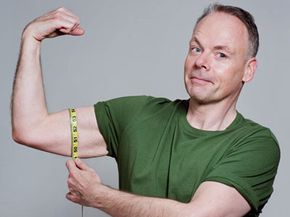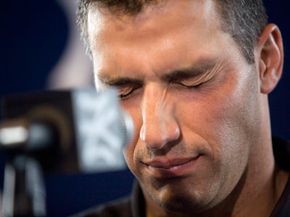When Juan Ponce de Leon set sail off the coast of Spain in the 1500s, he was in search of the Fountain of Youth. He didn't find it. Instead, he found Florida, where he eventually was shot dead with arrows by angry Native Americans. Not exactly the everlasting youth he'd hoped for.
But just because Ponce de Leon failed to find the Fountain of Youth doesn't mean we've stopped searching for it. In fact, the quest for eternal youth is timeless. More than 500 years later, we're still trying to turn back our bodies' clocks. We inject our faces with poison, get fat vacuumed out, swallow vitamin supplements -- anything to remove the signs of aging and thumb our noses at the Grim Reaper.
Advertisement
In fact, nowadays there are some people who believe they've found youth's fountain -- a hormone that helps you to lose weight, reduces wrinkles, lowers blood pressure, adds muscle mass, increases energy and actually reverses the aging process. It sounds like a fantasy, but it's actually something our bodies create naturally -- human growth hormone (HGH).
HGH is a hormone produced by the pituitary gland, a pea-sized gland found at the base of the brain. The pituitary gland produces various hormones, and each affect a specific part of the body. The human growth hormone targets muscles and bones, and the pituitary gland produces the most HGH during adolescence. HGH is essential for normal growth. For example, if a child's body produces too little HGH, the child may end up being very small in stature. Conversely, if a child's body produces an excess of HGH, he or she may experience exaggerated bone growth and become exceptionally tall. Both scenarios may result in medical problems.
Even after we grow up, our bodies continue to produce HGH. It plays an important role in regulating our metabolism. We generate it as we sleep, which is part of the reason why getting enough sleep is so important for our health. Production of HGH begins to decrease markedly around age 30 and slows progressively as we age further.
HGH is what gives us our youth, vitality and strength. Without it, well, we get old. Aging is inevitable, but many people aren't willing accept that fate without putting up a fight. Could HGH pack the final punch? Let's find out.
Advertisement

